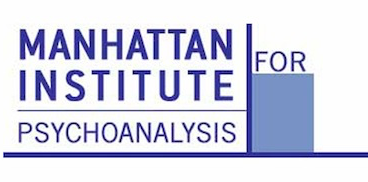In light of the recent New York Times headline, “Major Climate Report Describes a Strong Risk of Crisis as Early as 2040,” what could psychoanalysis have to offer us in facing this crisis?
In today’s post, Wendy Greenspun, Ph.D., and Elizabeth Allured, Psy.D., discuss how psychoanalytic theory can offer useful insights into how and why we struggle to emotionally engage with climate change, as well as vital opportunities to actively intervene.
Evidence of the predicted effects of the warming of our planet through greenhouse gas emissions is now pervasive. Yet we struggle with the immensity of the problem in the face of overwhelming emotions and can feel helpless to do anything of consequence. Lertzman (2015) termed this our collective “environmental melancholia.”
Along these lines, try a brief thought experiment. Picture these beautiful landscapes: a mountain forest with birds and rustling trees, a beach with waves gently lapping the shore in soothing rhythm, a pink and gold-hued desert at sunset. Notice how you feel as you imagine these healthy ecosystems, any calming in your body. Now visualize those same scenes in headline news of extreme weather events: the forest engulfed in an out-of-control wildfire, the beach battered by storm surge in a hurricane, the desert parched by longstanding drought, the brush withered and lifeless. Check in with how you feel again and observe any changes. What emotional reactions do you notice?
Psychoanalytic theory can offer useful insights into how and why we struggle to emotionally engage with climate change and may similarly offer inroads into helping ourselves and others to actively intervene. In one of the earliest analytic articles on the topic, Searles (1972) described the unconscious processes involved in our reluctance to face the environmental crisis. He described our need to experience the genital primacy and power of big cars and technology, seeing nature as the bad mother and technological progress as the good mother. He suggested that we may view our sons and daughters as Oedipal rivals, so we spoil the earth that we leave to them.
As psychoanalysts, we have relevant understanding of emotional reactions that influence our distress around the changing climate, such as anxiety, sadness, hopelessness, helplessness, and guilt. We know that when such painful affects emerge, we utilize a variety of defenses to keep from feeling inundated—minimization, denial, splitting, dissociation, numbing, etc. Weintrobe (2013) applies Kleinian theory to describe our tendency to use disavowal (simultaneously knowing and not-knowing) as a desperate attempt to fend off our sense of complicity in the ecological disaster. She describes the paranoid-schizoid reaction of feeling narcissistically entitled to whatever we want, including exploiting the earth for our own comfort and benefit, to reduce feelings of guilt and destructiveness. Paranoid processes such as “othering” and tribalism can increase as the climate crisis intensifies. Klein’s depressive position suggests that we have the capacity to progress from paranoid processes when we grieve the losses we’ve experienced and the pain we’ve caused, and we survive our guilt, allowing us to move toward reparation and acceptance. But how do we collectively proceed to the depressive position in relation to climate change?
Psychoanalysts know the painstaking work of helping patients to slowly dismantle defensive responses and face destabilizing experiences within the context of treatment. In the therapy dyad, the analyst provides a safe, non-judgmental space to hold the patient’s complex emotional reactions and build the capacity to mourn. Randall (2009) describes a similar framework for helping people to face their upset and responsibility related to the climate crisis. She suggests that we fail to act on climate change not because we are selfish or unwilling, but because of our inherent mix of competing values and desires: self-interest vies with altruism, convenience with environmental costs, guilt with a sense of entitlement. A stance of compassionate acceptance of this mixture of feelings helps us contemplate change more than shaming and blaming do. Think of the motivational interviewing strategy used to help alcoholics consider the pros and cons of their use, rather than admonishing their indulgence.
In addition to the difficulty of our personal consumption, we have a problem of government-supported fossil fuel production, leading to conscious or unconscious reactions to the lack of appropriate large-system action to reverse society’s ecocidal path. The situation can be compared to a dysfunctional family with neglectful caretakers, or a party of drunken adolescents where the parents bring in even more alcohol (DeMocker, 2018). This can lead to feelings of rage at the parent/governmental leadership, with concurrent feelings of having been abandoned and manipulated.
As with any therapeutic approach, clinicians need to address their own emotional reactions prior to helping others, since we, too, are subject to the same emotional stresses and defenses in the face of environmental degradation. Strategies might include partnering with others who feel similar concern to create mutual support and a context to work through shared distress. We can then engage our patients and larger communities about relevant environmental concerns from a position of understanding rather than reactive and strident anxiety.
We can increase ecological awareness by encouraging dialogues about important personal experiences in what we commonly call “nature.” This starts to break into the pervasive, post-industrial western tendency to artificially split person from environment, and can help move us closer to caring about our impact on the natural world, of which we are a part. In our clinical work, widening the lens of inquiry beyond family and culture to include early experiences of the ecosystem may encourage useful actions to combat environmental exploitation.
As psychoanalysts, we see the importance of hope and a capacity for agency in the aftermath of loss and trauma to fend off feelings of despair. Similarly, to build resilience in the face of our changing climate we can look to proposed approaches to reduce greenhouse emissions and drawdown carbon. One useful resource is Paul Hawken’s recent book, Drawdown: The Most Comprehensive Plan Ever Proposed to Reverse Global Warming (2017), which describes one hundred possible solutions to help reduce global warming.
Returning to our thought experiment, those imagined landscapes and their demise in extreme weather events, now picture the carbon-capturing replanting of the forest after fire, the use of ocean waves to generate renewable energy, the desert breeze fueling wind turbine power. How do you feel now?
Psychoanalytic understanding can help with the difficult work of facing and mourning our current losses, building resilience, and taking effective action on the climate crisis in these urgent times.
Interested in ecopsychoanalysis? Join Wendy and Elizabeth for their upcoming course, “Ecopsychoanalysis: Using Psychoanalytic Understanding to Face the Climate Crisis,” Saturdays, November 3 and 10, 9:30 am-12:30 pm.
$180; $150 for candidates
6 CEUs for NYS social workers
Learn more and register HERE
Elizabeth Allured, Psy.D., is on the faculty of Adelphi University’s Postgraduate Program in Psychoanalysis and Psychotherapy and the Suffolk Institute for Psychoanalysis and Psychotherapy. She is a graduate of Adelphi’s Postdoctoral Program in Psychoanalysis and Psychotherapy, and is on the steering committee of Climate Psychology Alliance’s North American chapter. She has published and presented articles on the relationship between mental health and the nonhuman environment, including “Blind Spot in the Analytic Lens: Our Failure to Address Environmental Uncertainty,” and “Holding the Un-grievable: a Psychoanalytic Approach to the Environmental Crisis.” She is in private practice in Port Washington, New York.
Wendy Greenspun, Ph.D., is on the faculty of the Manhattan Institute’s Certificate Program in Psychoanalysis and Adelphi University’s Postgraduate Program in Marriage and Couples Therapy. She is a graduate of the Manhattan Institute’s Certificate Program in Psychoanalysis and co-chair of the Curriculum Committee. She has published and presented on topics that integrate psychoanalysis and family systems theory, as well as mindfulness. As a native of Colorado, she has a deep connection to nature, and has expanded her systems thinking to include the broader natural environment. She is a supervising psychologist at Columbia University Counseling and Psychological Services and is in private practice in Manhattan.
References
DeMocker, M. (2018). The parents’ guide to climate revolution. Novato, CA: New World Library.
Hawken, P. (Ed). (2017). Drawdown: The most comprehensive plan ever proposed to reverse global warming. New York: Penguin Books.
Lertzman, R. (2015). Environmental melancholia: Psychoanalytic dimensions of engagement. New York: Routledge.
Searles, H. (1972). Unconscious Processes in Relation to the Environmental Crisis. The Psychoanalytic Review, 59(3): 361-374.
Weintrobe, S. (2013). The difficult problem of anxiety in thinking about climate change. In S. Weintrobe (Ed.), Engaging with climate change. New York: Routledge.
If you enjoyed this post, we recommend:
#MeToo Enters the Consulting Room by Sandra L. Green, LCSW, SEP








2 Comments
Leave your reply.